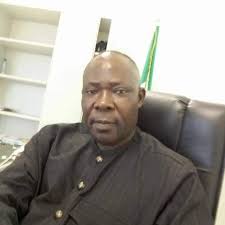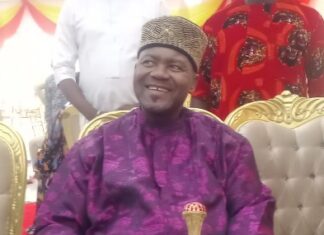By Emeka Nwosu, PhD.
Nigeria, is currently passing through turbulent times. It has continued to face gargantuan challenges in all aspects of human existence. Two areas that symbolize this lamentable trajectory are heightening national insecurity and collapsing economy. The country today, unarguably, faces the worst crisis of governance and leadership since political independence in 1960.
Nigeria is drifting and becoming divided more than ever before. The situation is not helped by the actions and policies of the Buhari-led administration which have tended to exacerbate the nation`s fault lines and cleavages. Instead of uniting the country and forging national integration through good governance and inclusive policies, the Government has been pursuing programmes and actions that have seemingly put the country in a quandary with rising social and political crises across the land. What the nation has witnessed in the last six years has been a steady drift to anarchy and unbridled violence.
It is a matter for regret that Nigeria is featuring as a seminal topic in different international fora as a case study in failed or failing States. This is troubling, to say the least. How did we get here? From being the largest economy in Africa only in 2014, we are now struggling as a badly misgoverned and mismanaged country with the infamous title of the poverty Capital of the world.
In a recent report authored by Robert Rotberg, the founding Director of the Harvard Kennedy School`s Programme on Intra-State Conflict and President emeritus of the World Peace Foundation, and John Campbell, a Senior Fellow at the Council on Foreign Relations and a former US Ambassador to Nigeria, they put Nigeria on the spot as a failed State. They wrote: “Nigeria has long teetered on the precipice of failure. But now, unable to keep its citizen safe and secure, Nigeria has become a fully failed State of critical geopolitical concern. Its failure matters because the peace and prosperity of Africa and preventing the spread of disorder and militancy around the globe depend on a stronger Nigeria”.
Going further to elaborate on the characteristics of a failed State, the report noted as follows: “It lacks security, is unsafe, has weak rules of law, is corrupt, limits political participation and voice, discriminates within its borders against various classes and kinds of citizens, and provides educational and medical services sparingly”.
The report went further more to state: “Most of all failed States are violent. All failed States harbor some form of violent internal strife, such as civil war or insurgency. Nigeria now confronts six or more internal insurrections and the inability of the Nigerian State to provide peace and stability to its people has tipped a hitherto very weak State into failure”. The report listed Democratic Republic of Congo, Central African Republic, and Myanmar in South East Asia alongside Nigeria as classical examples of failed States. Same report identified Somalia, South Sudan and Yemen as collapsed States. With the enumerated indices of State failure, can we really disagree with the classification of Nigeria as a failed State?
Nigeria as a heterogeneous society, is composed of diverse ethno-religious and social groups who were welded together by the British colonial authorities to pursue common aspirations as one united country. The nation`s diversity ought to have been a great asset and source of strength and vitality. Countries with such diverse ethnic mix like Nigeria have always found it necessary to promote national integration amongst their different ethnicities.
They pursue policies and programmes that promote inclusiveness and sense of belonging rather than division and segregation. Some of these countries like the United States, Canada, and Switzerland even have affirmative clauses in their Constitutions which are meant to carry everyone along including minorities.
Coming down to Africa, Rwanda under Paul Kagame and Libya under Mouamur Ghadaffi presented good examples of States where deliberate efforts were made at national integration with sterling results, which are there for even the most undiscerning minds to see.
But what do we see in our country today? A nation that held out so much promise and hope at the dawn of independence, has sadly missed the track and is fast cascading to the edge of the precipice, largely on account of mediocre leadership propelled by primordial considerations and clannish interests.
As a multi-cultural and multi-ethnic society, it is important that the country is held together by policies and programmes that promote unity in diversity. It is, therefore, hardly surprising that the British colonial masters guided Nigeria along the federalist path in which all the constituent units were encouraged to pursue a common aspiration while moving according to their own individual paces.
As a heterogeneous and plural society, to what extent has the nation promoted national integration and understanding amongst its diverse people? It is, perhaps, imperative at this juncture to attempt a theoretical definition of the concept of national integration and the role of the media in fostering and advancing it, especially in a complex country like Nigeria. In a paper he presented at a media colloquium in Enugu in 2019, Dr. Obiora Okonkwo, the Proprietor of United Nigeria Airline, defined national integration as “the recognition and awareness of a common identity amongst citizens of a country, along with deliberate and sustained effort to nurture such an identity in pursuit of national unity”.
Two Nigerian scholars, Dr. Jude Onyeakazi and Dr. Ejike Okoroafor, in a joint paper entitled, “National Integration in Nigeria: A Philosophical Insight”, see national integration as “mainly the process of bringing the various peoples of different cultural and social background together in a given social context or polity for their collective interests and good”. Against the foregoing, national integration, in clear terms, means the deliberate forging of understanding and inter-group cooperation amongst disparate and diverse social entities in a given polity with the ultimate objective of maintaining peaceful coexistence.
Given the multi-cultural character of the Nigerian society, the pursuit of national integration is imperative. There is, therefore, the need for the country to seek the implementation of policies and programmes that promote unity in diversity. Since independence, some policies have been put together to foster national integration and understanding. They include, among others, the introduction of the National Youth Service Corps (NYSC) and Unity Colleges in the aftermath of the Nigerian civil war. The initiatives were meant to build bridges of understanding and cooperation amongst youths and students from different cultural and religious backgrounds in the country. There are also some deliberate constitutional initiatives like the federal character principle in the composition of Government and its agencies and also the requirement of geographical spread for candidates seeking elections at the federal level.
All these initiatives and others are deliberate policy measures put in place to strengthen the bonds of unity and understanding amongst the various ethnic and social groups in the country. Historically, the relationships amongst the groups, especially the Hausa-Fulani, Igbo and Yoruba who are the majority tribes in Nigeria, have been anything but cordial and harmonious. These groups are usually in fierce competition for power at the centre and habour mutual resentments for each other. They are suspicious of one another and seek every opportunity to play the politics of dominance. The hostile inter-ethnic relations have continued to define the interactions amongst these contending ethnicities, with obvious implications for national unity.
All the various crises we have had in Nigeria from independence to date, including the Civil War, which have challenged efforts at national integration have their roots in inter-ethnic mistrust and distrust. But in spite of the measures that were taken in the aftermath of the War to promote national integration, the country has not made much progress in this regard. Poor ethnic relations and religious intolerance have remained the order of the day and have continued to worsen with the country regressing by the day, especially under the watch of this administration.
But in all of this, where is the media? What role is it playing in the remediation of the crisis of national integration? For a clearer understanding, the term ‘media’ refers to “the main means of mass communication (broadcasting, publishing, and the internet) regarded collectively”. Generally, the media can be defined as the platforms or agencies through which people communicate or conduct exchanges in any organized society. The media is a very important factor in the management of any modern society. No wonder it is known as the fourth estate of the realm, after the Executive, Legislature and Judiciary!
Apart from its primary roles of educating, informing and entertaining the populace, it has the singular responsibility of upholding accountability in governance. It does this through its investigative and monitoring functions. But to what extent has the media performed these sacred roles? We must tell ourselves the home truth. We, in the media, have not lived up to expectations. The media in Nigeria is largely propelled by self-interest and primordial considerations.
Apart from the pre-independence era and during the period of prolonged military interregnum in the country when the media stood with the people and powered the struggles against colonial domination and military dictatorship, it has been in the forefront of championing regional and ethnic agenda which are not in tandem with national integration. For example, a section of the media was actively involved in instigating the crises that led to the Civil War. Even lately, we have seen also how a section of the media is lending itself as a tool for the subversion of national unity through its blind support for the divisive and discriminatory actions of the Government in power. These unpatriotic activities are clearly documented.
It is these unprofessional activities of the media that made a former Director General of the State Security Services (SSS), Afarkriya Gadzama, to note as follows in a media workshop in 2009: “The press has strongly emerged as a medium for advocacy, yet that platform has been dominated by unpatriotic interest groups whose positions are devoid of any considerations for peace, stability and development. Rather, their primary allegiance is owed to anyone who can afford them. Instead of the media remaining a platform for the people`s needs to be projected, it is increasingly offering podiums for those who are ready to disparage economic, political and other form of opponents”. Although, Gadzama was a bit harsh in his assessment, what he said is largely true of the conduct of our media. More than a decade after he made this stinging indictment, nothing much has changed in the way the media has carried on with its activities.
The truth is that, in recent times, the media has placed regional and pecuniary considerations well above its constitutional role as a watch dog. The question now is: if the watchman does not watch well, who watches the watchman? The pursuit of narrow interests, I believe, has caused the media huge distractions and diverted its attention from playing its role as a unifier and stabilizer. Given the unfolding reality of State failure which is staring us in the face, the media should wean itself of ethnic and religious prejudices and begin to take seriously its role as a watch dog and ombudsman.
National integration cannot be achieved in an environment where social discrimination, nepotism, favouritism, exclusionism and high-handedness are being pursued as Directive Principles of State Policy. The media should wake up from its slumber and rise above the fray. In a situation where the judiciary and legislature had been emasculated, the media and civil society are the true last line of defence of the common man. They must rise to this responsibility by waging a campaign against the actions and inactions of Government that constitute an affront to efforts at national integration.
Dr. Nwosu, the National Convener of Nigeria Equity Group (NEG), writes from Abuja.













